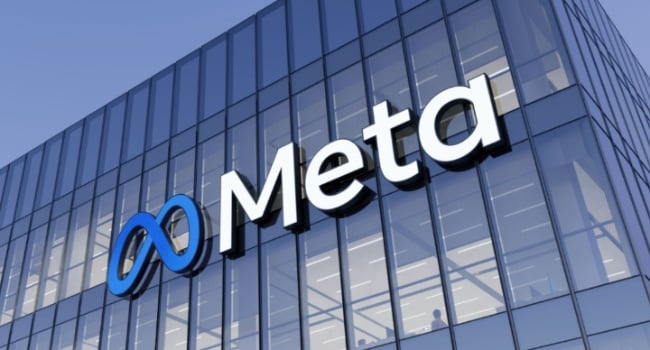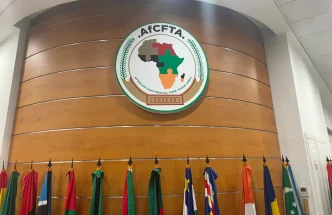BY OLUWAGBENGA MAGBAGBEOLA
When I began my career in Nigeria’s capital markets 17 years ago, wealth creation through investments was a privilege reserved for the elite. Minimum investment thresholds of ₦5 million to ₦ 20 million excluded the vast majority of Nigerians.
Today, we are witnessing a profound transformation as technology democratizes access to financial opportunities that were once unimaginable for everyday Africans.
Beyond Basic Banking
For too long, we’ve celebrated basic financial inclusion while ignoring the harsh reality: simply having a bank savings account means little if your savings are consistently eroded by inflation. According to the World Bank’s Global Findex, while mobile money adoption has surged to over 60% in some African markets, only a few Africans hold investment accounts that can keep pace with inflation.
Advertisement
Real economic empowerment requires access to investment vehicles that build wealth over time. With the African Securities Exchanges Association reporting that only about 5% of African adults participate in capital markets, compared to over 50% in developed economies, we’re leaving tremendous potential untapped.
This isn’t just about individual prosperity. The collective impact of democratizing investment access extends far beyond personal portfolios, boosting economic growth and empowering communities with broader opportunities. The African Development Bank estimates that effectively mobilizing domestic savings through inclusive investment channels could unlock over $230 billion annually for infrastructure and development.
When millions of small investors can pool resources through technology-enabled platforms, transformative capital formation occurs. However, economic growth will remain constrained until we bridge this investment gap through technological innovation.
Advertisement
The Technology Revolution
The good news is that change is already underway. Digital platforms have dramatically reduced operational costs through automation, paperless processes, and direct customer acquisition channels. This technological efficiency has transformed the economics of asset management, making it commercially viable to serve customers with much smaller portfolios.
A 2023 report by Briter Bridges found that investment and wealth-tech startups in Africa grew by 62% between 2020 and 2023, with mobile-first platforms leading this transformation.
Today’s digital investment platforms, like Sycamore, enable Nigerians to start with around ₦8,000 ($5), democratizing access in ways that were previously unimaginable. Data from the Boston Consulting Group (BCG) suggests that digitally enabled retail investors in Africa could grow from 5 million in 2022 to over 30 million by 2027, primarily driven by smartphone penetration and fintech innovation.
Artificial intelligence is further levelling the playing field. Research shows that AI-powered investment tools analyze market data ten times faster than human analysts. Sophisticated algorithms now provide investment analysis that was once the exclusive domain of well-staffed research departments at major institutions.
Advertisement
The Path Forward
Despite this progress, significant challenges remain. An EFG Hermes study found that only 40% of African digital investment platforms provide adequate risk disclosure. Regulators are working to balance innovation with protection – Nigeria’s SEC and Kenya’s CMA have introduced new frameworks for digital investment platforms, but more coordination is needed.
Looking ahead, four trends will accelerate this democratization:
First, fractional investing will continue to break down barriers. Platforms like Trove in Nigeria and Akiba Digital in South Africa enable users to buy fractions of stocks, bonds, and real estate with as little as $10. This trend will open asset management to more Africans wanting to achieve wealth.
Second, embedded finance will integrate investment opportunities into everyday applications. Partnerships between banks, telecommunications companies, and fintechs are making wealth-building a seamless part of daily financial life.
Advertisement
Third, regulatory evolution is enabling access to alternative assets. Nigeria’s Investments and Securities Act of 2025 has created frameworks for retail participation in previously restricted asset classes. This landmark legislation allows smaller investors to access private equity, real estate investment trusts, and infrastructure funds through regulated platforms while maintaining appropriate investor protections.
Finally, the African Continental Free Trade Area is projected to increase intra-African investments by more than 50% by 2025, according to the United Nations, expanding opportunities beyond national borders.
Advertisement
A New Vision for African Wealth
The future of asset management in Africa belongs to solutions that combine institutional-grade investment approaches with radical accessibility. With global assets under management expected to significantly increase in size from $111.2 trillion in 2020 to $145.4 trillion by 2025 (PwC), the key question is not whether growth will occur, but who will benefit from it.
By merging traditional financial expertise with technological innovation, we can ensure that economic growth translates into improved livelihoods for millions of Africans. This isn’t merely about new apps or lower fees – it’s about fundamentally reimagining who participates in wealth creation across our continent.
Advertisement
When I entered this industry almost twenty years ago, it was a privilege for the elite. Now, it is an opportunity for every Nigerian with a smartphone. This transformation represents not just technological progress but the democratization of economic opportunities.
Oluwagbenga Magbagbeola is the managing director of Sycamore Investment and Asset Management Limited. He brings over almost two decades of experience in Nigeria’s capital markets.
Advertisement
Views expressed by contributors are strictly personal and not of TheCable.










